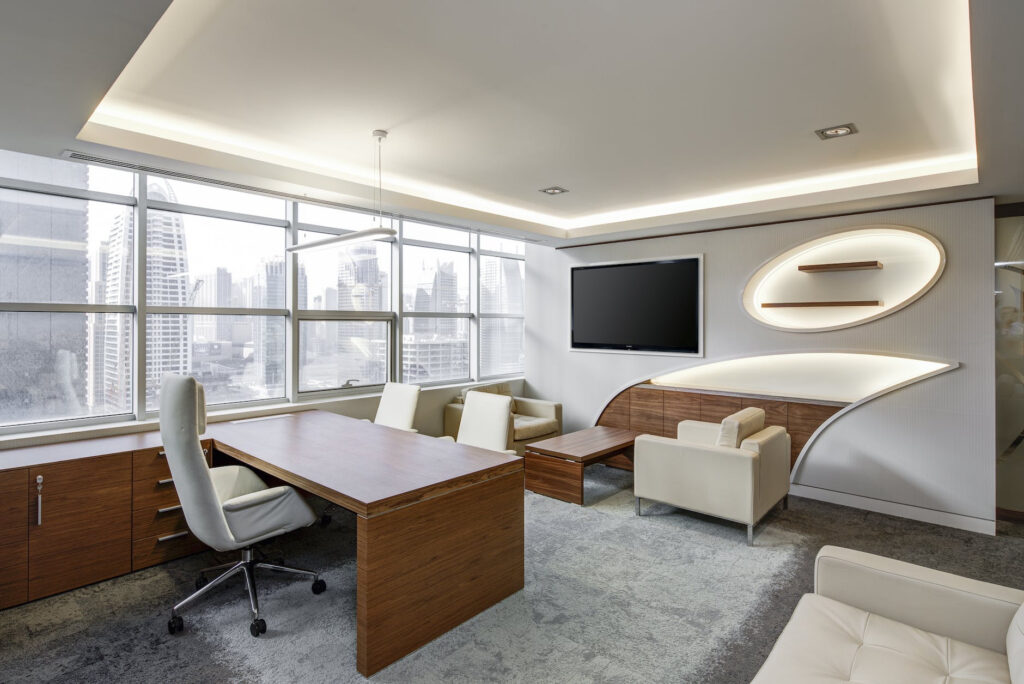
The design of office spaces goes far beyond aesthetics and functionality. The choice of office furniture plays a significant role in shaping employees’ psychological and emotional well-being. A well-designed and thoughtfully furnished workspace can positively impact employee mood, motivation, and productivity. In this article, we will delve into the psychology of office furniture and explore how businesses in Australia can create positive and productive work environments through strategic furniture choices.
The Power of Perception: How Office Furniture Influences Employee Perception
Office furniture communicates messages beyond its physical form. The furniture’s design, color, and layout can influence how employees perceive their workspace and the company. Ergonomic, stylish, and well-maintained furniture can create a sense of professionalism and care for employee well-being.
Colors and Emotions: Using Psychology to Influence Mood
Colors have a profound impact on emotions and mood. When selecting office furniture, businesses should consider the psychological effects of different colors. For example, blue is associated with calmness and productivity, while green promotes balance and nature. Incorporating these colors into furniture choices can create a harmonious and emotionally supportive work environment.
Ergonomics and Employee Comfort: Fostering a Sense of Care
Ergonomic office furniture shows employees that the company values their well-being. Ergonomically designed chairs, adjustable desks, and supportive accessories communicate care for employee health and comfort. Comfortable furniture reduces physical strain, boosts productivity, and enhances overall job satisfaction.
Encouraging Collaboration: The Psychology of Office Layouts
The layout of office furniture can impact how employees interact and collaborate. Open-plan workstations with shared desks or collaborative seating arrangements promote communication and teamwork. Strategic furniture placement can create inviting spaces for impromptu discussions and idea-sharing, fostering a culture of collaboration.
Personalization and Identity: Empowering Employee Ownership
Allowing employees to personalize their workspaces with office furniture empowers them and fosters a sense of ownership. Personalized spaces reflect individual identities and create a more welcoming and inclusive work environment. This personal touch promotes employee engagement and satisfaction.
Neatness and Organization: Reducing Stress and Distractions
Cluttered and disorganized workspaces can lead to increased stress and reduced productivity. Well-organized office furniture, such as storage cabinets and filing systems, encourages tidiness and reduces distractions. A clean and clutter-free environment promotes mental clarity and focus.
The Impact of Biophilic Design: Connecting with Nature
The biophilic design integrates natural elements into the office environment, such as wood, plants, and natural light. Office furniture incorporating biophilic elements connects employees with nature, reducing stress and promoting well-being. Greenery and natural textures in furniture choices create a more calming and inspiring workspace.
Flexible and Adaptable Spaces: Empowering Employee Autonomy
Office furniture that is flexible and adaptable empowers employees to control their workspace to suit their needs and preferences. Adjustable desks, movable partitions, and modular furniture allow for individual customization. This autonomy enhances employee satisfaction and productivity.
Creating a Sense of Identity: Aligning Furniture with Company Culture
Office furniture can be used to reinforce company culture and values. For example, modern and innovative furniture may align with a forward-thinking tech company, while traditional and elegant furniture may reflect a more formal and established organization. Aligning furniture choices with company culture creates a cohesive and unified work environment.
The psychology of office furniture goes beyond aesthetics, impacting employee perceptions, emotions, and behaviors. Thoughtful and strategic furniture choices can create positive and productive work environments in Australia. Colors influence mood and emotions, while ergonomic and comfortable furniture shows care for employee well-being.
Office layout and furniture placement encourage collaboration and teamwork, fostering a sense of community. Personalized workspaces empower employees and promote a sense of ownership. Neat and organized environments reduce stress and distractions, enhancing focus and productivity.
Biophilic design connects employees with nature, promoting well-being and inspiration. Flexible and adaptable furniture gives employees autonomy over their workspace, boosting job satisfaction. Aligning furniture choices with company culture reinforces identity and values, creating a cohesive and unified workplace.
By understanding the psychology of office furniture, businesses in Australia can design workspaces that impress clients and support employee well-being and productivity. Strategic and thoughtful furniture choices can transform the office into a place where employees feel valued, motivated, and inspired to perform at their best.
Last Updated on 12 months by Lavania Oluban
